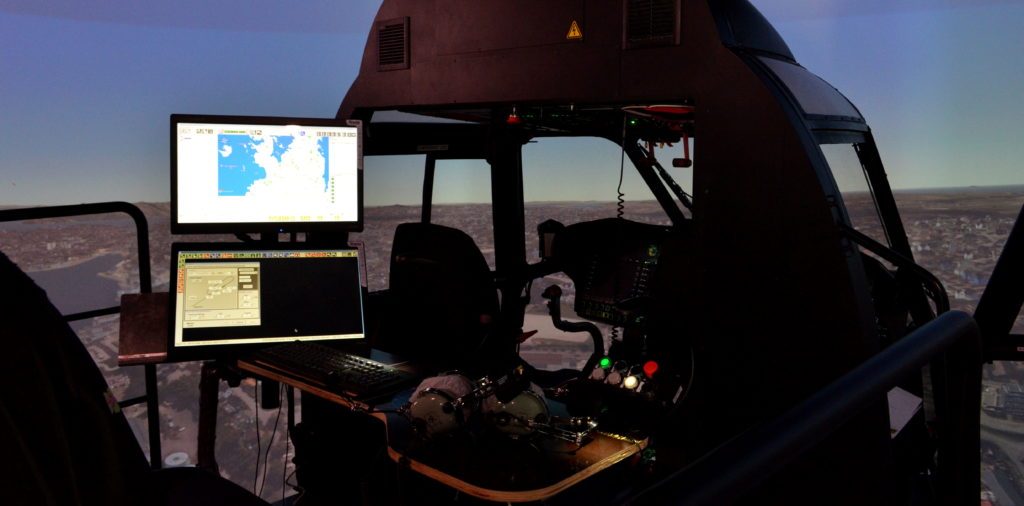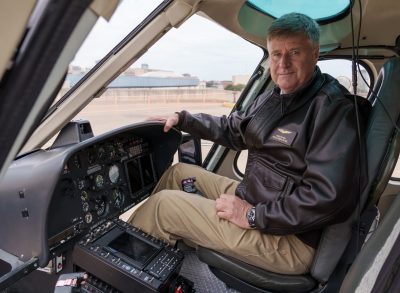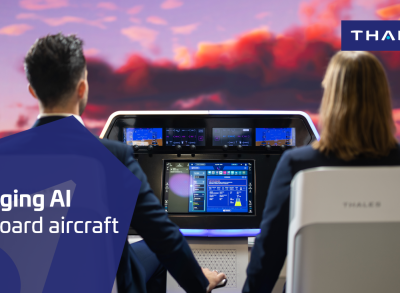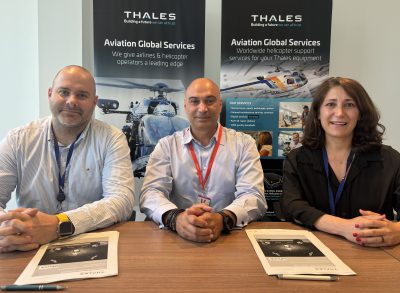Helicopter simulation: getting the whole crew onboard
Thales has been a leading player in the world of helicopter simulation for 20 years. Product Line Manager Joël Flinois talks about the specific needs of this market and some of the major trends for the future.

Thales has been involved in helicopter simulators and training centres for about 20 years. We began by developing full-flight simulators, then expanded into training services in the early 2000s through a series of training centre projects. The best known is the Helisim partnership with Airbus Helicopters in Marignane, near Marseille. Today, Helisim is the largest Airbus-certified helicopter simulation centre in the world, offering a wide range of training options on seven different helicopter types. Thales is also involved in training centres in the United Kingdom for the Royal Air Force’s Sea King and Lynx helicopters, and in Germany for the German Army’s NH90s. We also provide Tiger simulators and trainers for the French, German and Australian armed forces.
How is Thales positioned in this market today?
Thales was one of the first to design and build full flight simulators (FFS) for helicopter pilots and to achieve the highest level of certification by the civil aviation authorities (FFS Level D). Demand for training is growing, driven by regulatory changes and the increase in the number of pilots but also by the rising number of helicopter accidents in recent years. Our offering has kept pace with the evolving needs of the market. At the same time, we’ve been working on a new training facility in Albertville in the French Alps, which opened in 2014 (http://buff.ly/1M8ShoK), and on two new centres that will be opening in Norway later this year and in Australia in 2016. Today, helicopter training centres are really the only cost-effective way to serve such a highly fragmented market.
What makes Thales different?
Helicopter operators tend to be small organisations without the necessary resources to invest in simulators, so they prefer to purchase training by the hour. Training centres offer turnkey packages to meet this demand. Or for helicopter operators with their own instructors and training programmes in place, the centres give them access to the simulators they need to deliver their training. In addition to the mandatory training required by regulators, we also offer mission training packages dedicated to search and rescue, night flying with night-vision goggles, emergency medical services, offshore oil and gas services and many other types of missions. The objective is to train pilots in operational conditions that are very similar to real life. That calls for sophisticated software to generate highly adaptable scenarios that match the conditions encountered on actual missions as closely as possible. We draw on the whole gamut of Thales’s simulation experience to incorporate the latest technologies into our helicopter solutions. Our Hexaline motion system, for example, is an all-electric, high-fidelity, six-axis linear motion system that offers a unique level of flexibility for unmatched pilot perception and greatly enhanced performance.
What kind of feedback do you get from pilots?
Typically, pilots appreciate simulator-based training. Simulators give them a wider range of exercises than a real helicopter, so they can train more effectively in different situations with no risk of an accident. Statistics show that 20 to 25% of accidents happen during training sessions in real helicopters. But on a simulator, pilots can practise emergency procedures or particular manoeuvres over and over again until they're ready for the real thing. It's an important way to build their confidence, and they can use the simulator to perform manoeuvres they could never do in a training session on a real helicopter. Simulator-based training reduces the number of accidents, but it also significantly improves the level of pilot training.
What does the future hold for helicopter simulation?
Helicopter simulation has a bright future ahead of it. The market is constantly evolving and moving towards more comprehensive training with more complex scenarios. One key development is that all the members of the aircrew are starting to take part in simulator-based mission training exercises. For search-and-rescue missions, for example, we already offer training packages that include not just the pilots but the SAR operators as well. In the future, all members of the aircrew will be involved in the training. So we’ll no longer be talking just about pilot training but aircrew training, particularly to meet specific mission training needs. We already have the resources and the technologies to deliver the simulation systems and solutions needed for this type of training. And Thales’s long experience in collective training for the armed forces is a real asset for proposing comprehensive simulation-based training packages for helicopter crews.
Find us on Twitter @thales_avionics, on our official Youtube channel Onboard TV and on LinkedIn Thales Aerospace.




